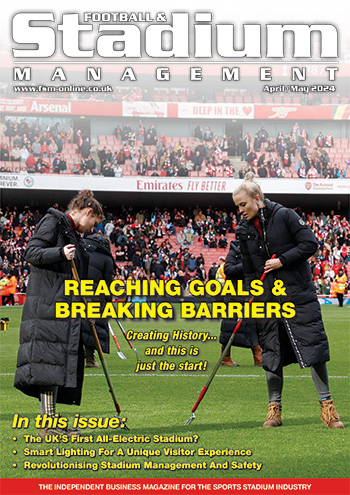VIPs Visiting Wembley Likely To Be Exempt For Quarantine Rules
 As the European Championships reaches its conclusion the UK government acted to ensure the semi-finals and final remained at Wembley stadium. With UEFA concerned about the infection rates in the UK, an agreement was found, meaning visiting football VIP's are likely to be exempted from self-isolation rules on arrival in the UK and instead create their own 'bubbles'.
As the European Championships reaches its conclusion the UK government acted to ensure the semi-finals and final remained at Wembley stadium. With UEFA concerned about the infection rates in the UK, an agreement was found, meaning visiting football VIP's are likely to be exempted from self-isolation rules on arrival in the UK and instead create their own 'bubbles'.
The Government appears to be approaching a compromise deal that would require UEFA and FIFA officials, politicians, sponsors and broadcasters to agree to only attend football matches - effectively placing them within the sporting event "bubbles". Many VIPs are expected to fly in and out of the country on the same day, or stay overnight in hotels block-booked for the tournament.
The Government announced on Tuesday that more than 60,000 football fans will be allowed to attend the semi-finals and final at Wembley if they have a negative Covid-19 test or prove they are double vaccinated.
UEFA had voiced their concern for 2,500 VIPs to be allowed to attend the competition's final on July 11th without being subjected to quarantine requirements that apply to other international travellers.
The Government and UEFA have been engaged in talks over travel restrictions, which a UK source said were "positive" and that "final details are being worked through", although ministers had indicated that some restrictions would remain in place.
There were suggestions that if a compromise could not be met that the final could be moved to Budapest or Rome, with Italian Prime Minister Mario Draghi confirming Rome could provide an alternative venue.
However, in a statement, UEFA said: "UEFA, the English FA and the English authorities are working closely together successfully to stage the semi-finals and final of Euro 2020 in Wembley and there are no plans to change the venue for those games."
Attendance capacity for the tournament's closing matches at the stadium has been increased to 75%, which could see some of the largest crowds for a sporting event in the UK since the start of the pandemic with all ticket holders required to have a negative coronavirus test or provide proof of two doses of a vaccine 14 days before a game.
Culture Secretary Oliver Dowden said: "As we continue to make progress on our road map out of lockdown, keeping the public safe remains our top priority. We have worked extremely closely with UEFA and the FA to ensure rigorous and tight public health measures are in place whilst allowing more fans to see the action live. The finals promise to be an unforgettable moment in our national recovery from the pandemic."
Mayor of London Sadiq Khan said the matches "will show that when it comes to great sporting events, London simply cannot be beaten" and urged Londoners to stick to Covid rules during the tournament.
Mark Bullingham, FA chief executive, said: "We hope that this programme lays the foundation for the safe return of fans in stadiums all across the country next season."
The matches held at Wembley stadium for the Euros form part of the Government's events research programme (ERP) which has seen test events held at sporting, music and other venues to assess the impact of crowds on Covid-19 infection rates, which so far has been extremely successful, with next to zero cases attributed to the pilot test events.
Pilot events under the ERP include the Royal Ascot horse racing meeting being permitted to host crowds of up to 12,000 spectators per day, while the first week capacity of the Wimbledon tennis championships will be capped at half of normal levels - 21,000 people, but is expected to rise to full capacity as the tournament reaches its finale.
Currently it is expected July 13th will signal the end of the current restrictions within the UK, as social distancing is replaced by a 'social responsibility' to remain alert and considerate of others. This is due to the significant success of the vaccination programme, which has been greatly aided by numerous stadia around the UK. The wearing of facemasks in public places is also expected to become optional.















































